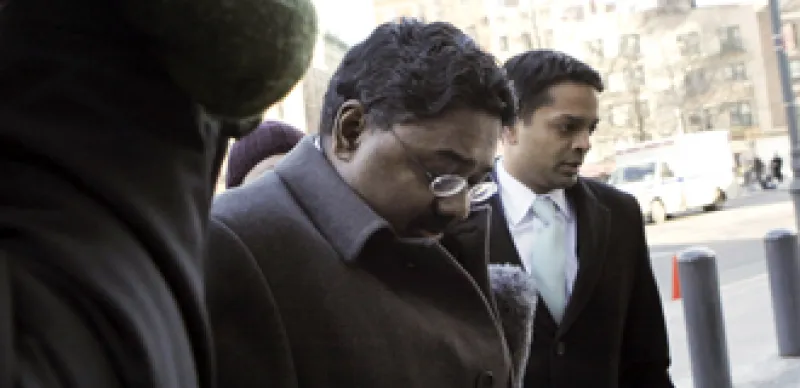
Raj Rajaratnam, founder of Galleon Group LLC, arrives at federal court in New York, U.S., on Tuesday, Jan. 12, 2010. Rajaratnam, accused of fraud in an insider-trading scheme, is seeking a reduction of his $100 million bail. Photographer: Natalie Behring/Bloomberg *** Local Caption *** Raj Rajaratnam
Natalie Behring/Bloomberg

